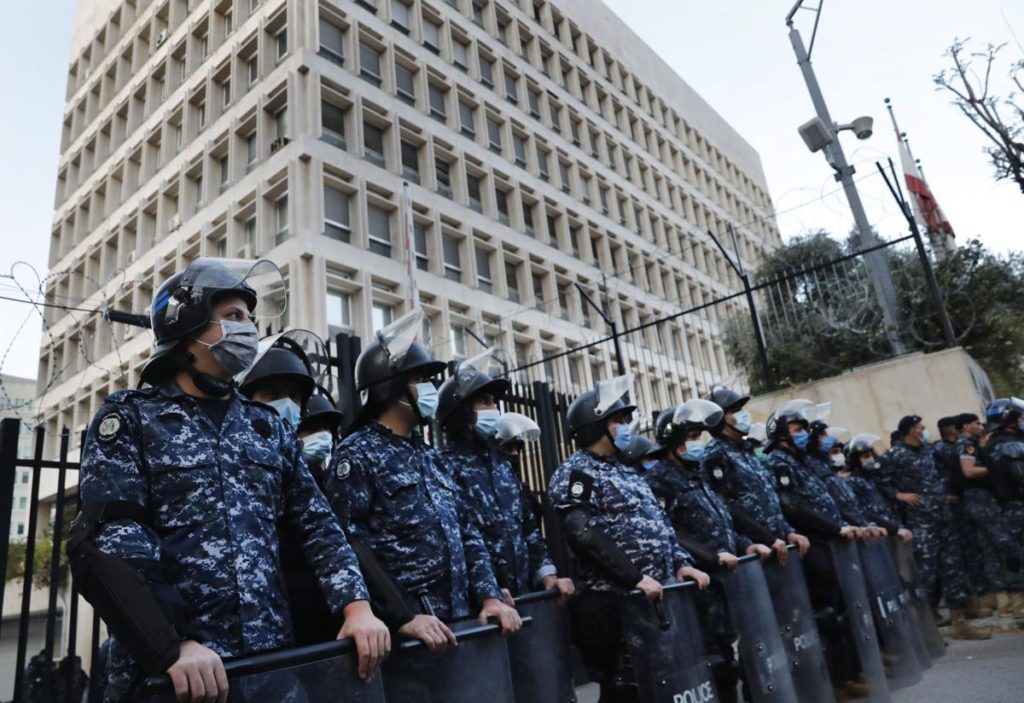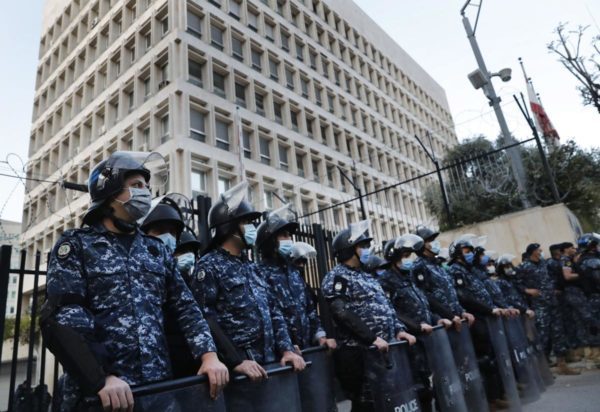BEIRUT: Lebanon’s economy will contract further in 2020 and 2021 due to the delicate conditions in the country and mounting pressure on the government, J.P. Morgan warned.

“After two years of recession, Lebanon’s economy is expected to contract again this year. The economy contracted by an estimated -6.9 percent in 2019 after the -1.9 percent reported in 2018. we expect the economy to contract -14 percent in 2020 and -4 percent in 2021, with risks to the downside,” the U.S. based investment bank said in its recent report on Lebanon.
The government of Prime Minister Hassan Diab has already projected an economic recession in the next two years due to the sharp drop in the government revenues and the negative impact of coronavirus on the battered economy.
The first quarter of 2020 witnessed a net deterioration in Lebanon’s public finances as per the recent figures released by Lebanon’s Finance Ministry.
Lebanon’s public finance deficit reported a significant rise of 70.9 percent when compared to last year’s corresponding period.
This resulted from a tangible drop of 13.6 percent in public revenues (mainly tied to the weak real sector activity and in the aftermath of the state of emergency declaration due to coronavirus), in conjunction with a growth in public expenditures of an annual 9.5 percent over the first quarter of 2020.
As such, the primary balance shifted from a small surplus of $30 million to a primary deficit of $676 million between the two periods.
“Reflecting the dire situation, BdL coincident indicator index was down 12 percent oya [one year ago] in January, claims on the private sector are down by a fifth in April from a year earlier, and construction permits were down by a massive 65 percent oya,” J.P. Morgan said.
It added that the Lebanese authorities have announced a five-year plan which seeks to start with a clean slate, but a near-term recovery will be an uphill task.
“After restructuring, the plan envisages public debt to decline by about a third in absolute terms from levels at the end of last year. The plan identifies losses of the banking system and the Central Bank and allocates these losses to creditors, large depositors, and bank shareholders. The plan seeks to improve the primary balance from a 3 percent of GDP deficit next year to a surplus of 1.6 percent of GDP, through expenditure restraint and revenue raising measures,” the report said.
It noticed that the program does not focus much on privatization beyond stating that asset sales to cover losses would not be fair for future generations.
“The plan does touch on other key issues such as pension and subsidy reform. Under the plan, the authorities are planning to abandon the peg and effectively unify the exchange rate at a level closer to the parallel market rate,” the report said.
It added that given the large losses and the sharp deleveraging underway in the economy, the near term outlook is extremely difficult, with rising unemployment and possibly further political volatility.
The investment bank did not expect a commitment from the International Monetary Fund to inject financial assistance to Lebanon in view of the current situation in the country.
“We do not expect a quick agreement to be reached with the IMF in the midst of the uncertainty given the debt restructuring plans and differences in the timeline for fiscal reform and the scope of structural reforms, let alone political issues such as Hezbollah representation in the Cabinet,” the report said.
But J.P. Morgan expected Lebanon’s e fiscal deficit to be somewhat lower than a year ago due to factors such as the decision by the central bank to reimburse the M of Finance of Lebanese debt interest payments, adding that the pandemic has caused a further setback.
“There is a great deal of uncertainty over the fiscal outlook amidst the pandemic, the crash in activity, and debt restructuring. The authorities are aiming for a deficit equivalent to 5.3 percent of GDP under their plan. Given the high uncertainty and pandemic impact, we expect a sharp slowdown in revenues which could keep the deficit high at 9.2 percent of GDP,” the report said.
The report also expected the Lebanese pound and foreign currency reserves to remain under pressure.
“Liquid FX reserves of the central bank have declined to about twelve months of imports just over $20 billion. We expect capital controls to continue. The contraction in imports and low oil prices helped to improve the current account picture, but the pandemic has devastated tourism and is expected to cause a drop in remittances.
(The Daily Star)


Leave a Reply
You must be logged in to post a comment.